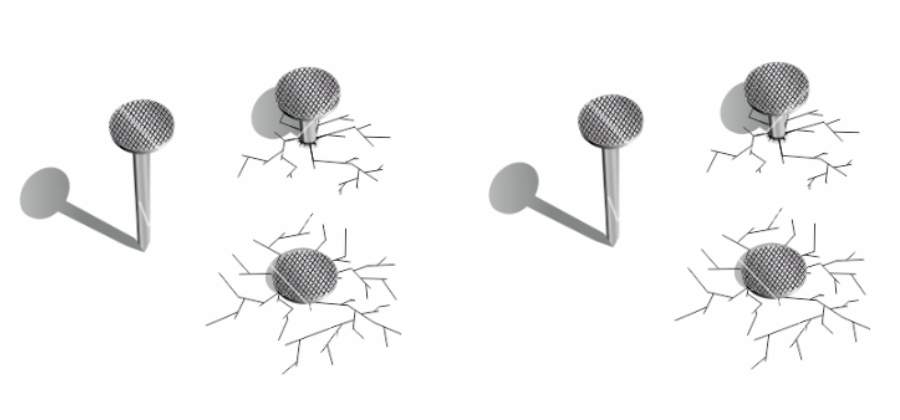This article is a continuation of, Wiring Regulations: New or rewired domestic and similar installations - both articles being inspired from the Industry Standards and Guides on the ESC website. Below you can find some of the most asked questions when it comes to attaching / fixing TV's on the wall, driving nails into walls, etc - and the Wiring Regulations.
If the mains supply cable to a fixed appliance such as a flat screen TV is concealed in a wall or partition at a depth of less than 50 mm, does the 17th Edition require the lead to be RCD-protected in accordance with Regulation 522.6.102 even though it’s connected by means of a plug and socket?
Yes. The risk of penetration by a nail or screw is the same as for other concealed cable. Also, if the wall or partition has internal metallic parts (except nails and screws, etc), RCD protection in accordance with Regulation 522.6.103 is required irrespective of the depth of the cable from the surfaces.More info: see Regulation number(s) 522.6.102, 522.6.103
Should signal amplifiers mounted at high level on television aerials where they might be struck by lightning be main bonded?
There is no specific requirement in BS 7671 but, if there is considered to be a significant risk of a lightning strike, the advice of a lightning protection specialist should be sought.What types of mechanical protection provide sufficient protection against penetration by nails, screws and the like?
As an example, steel of 3 mm minimum thickness is generally considered to provide sufficient mechanical protection, except where shot-fired nails are likely to be used.More info: see Regulation number(s) 522.6.101, 522.6.103
Can accessories and electrical equipment such as socket-outlets and under-cupboard lighting be fixed to fitted kitchen units?
Yes, provided that they are securely fixed to rigid parts of the units that are not demountable or otherwise liable to be disturbed in normal service. However, care must be taken to comply with all the relevant requirements of BS 7671, including accessibility for inspection, testing and maintenance, and provision of adequate protection against damage (by impact or water for example) for the accessories, equipment and associated wiring.More info: see Regulation number(s) 530.4.2For more information and Industry guidance on the wiring regulations in the UK, especially the 17th edition, visit the ESC website (Electrical Safety Council) website. Some of the most frequently asked questions concerning the new or rewired domestic and similar installations can also be found on their website.




